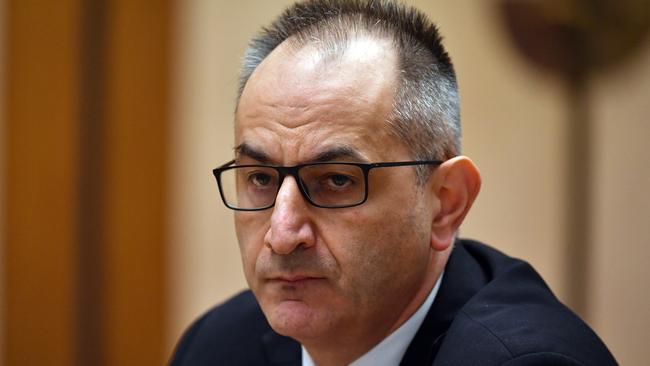Aussie values under threat, says Home Affairs
The Department of Home Affairs has warned the stability of liberal democracies is under threat.

The Department of Home Affairs has warned the stability of liberal democracies is under threat from new challenges to social cohesion, growing foreign interference and declining public trust in institutions.
It has made the case for a robust response to prevent community disruption and the radicalisation of vulnerable individuals, arguing that confidence in government is underpinned by strong borders, an orderly migration program and a robust model of citizenship.
READ MORE: Malaysia, China top migrant ‘red flag’ list | ASIO takes lead as spy agencies are put on war footing
A 27-page Home Affairs submission to a parliamentary inquiry on nationhood, national identity and democracy says multiculturalism will be strengthened if new arrivals adopt Australian values, which include learning to speaking English, obtaining work, participating in the “social and economic life of the nation” and achieving comparable living standards, in addition to maintaining traditional cultural practices.
The department, led by one of the nation’s most powerful bureaucrats, Mike Pezzullo, has strongly promoted citizenship and shared values as key elements in Australia’s success.
The submission, including several attachments, highlights the Christchurch massacre as an example of what happens when social cohesion breaks down and individuals are radicalised, and argues it is a challenge Australia must prepare for and respond to.
Foreign interference and terrorism are identified as major threats to Australia, and the department sounds the alarm on some states that are “asserting authoritarian models in opposition to open, democratic governance”.
The department — which views one of its key missions as upholding social cohesion — says Australia takes an “integrated approach to multiculturalism”.
“All migrants are strongly encouraged to become fully integrated members of our society, while also being able to celebrate, practice and maintain their cultural traditions within the law, free from discrimination,” it says.
“English language proficiency is a key contributor to better employment and educational outcomes, social participation levels, and helps provide an overall sense of belonging to the Australian community.”
As of June 2016, overseas-born people accounted for 28.5 per cent (6.9 million) of the population, and almost half the population were born overseas or had at least one parent born overseas. The department says there was no concept of a unique national identity at Federation and it was “informed” by the creation of Australian citizenship on January 26, 1949, with the Nationality and Citizenship Act 1948.
“Our citizenship model has been central to Australia’s success in building an open, prosperous and united nation,” it says. “It represents full and formal membership of the Australian community and participation in democratic processes. It builds mutual obligations between government, the community and the individual, and strengthens our resilience and sense of belonging.”
It notes Australia has one of the OECD’s highest rates of citizenship acquisition at more than 80 per cent. In 2018-19, 127,674 people from at least 200 different countries became Australian citizens by conferral.
“The Australian community expects that aspiring citizens demonstrate their allegiance to Australia, their commitment to live in accordance with Australian values, and their willingness and ability to integrate into and become contributing members of the Australian community,” the submission says. “Our nation is stronger when we have informed citizens who understand their rights and responsibilities.”
The submission sounds the alarm on a range of new threats including the use of digital platforms by terrorists to radicalise the vulnerable, the return of foreign fighters and growing attempts by foreign governments to influence Australia’s sovereign institutions.
It warns that the connectedness empowering Australians also brings challenges that “threaten to undermine our social cohesion.”
“Around the world, the stability of liberal democracies is being challenged by groups who seek to interfere with democratic processes, threaten social cohesion and exploit prosperity, and by declining public trust in democratic processes,” it says. “Australia is not exempt from these global trends.
“Recent global events, such as the 2019 Christchurch terrorist attacks, have heightened the need for Australia and international partners to be proactive in anticipating and responding to emerging challenges.”




To join the conversation, please log in. Don't have an account? Register
Join the conversation, you are commenting as Logout